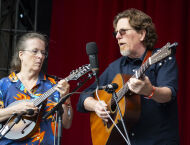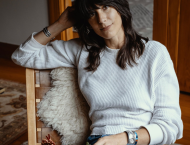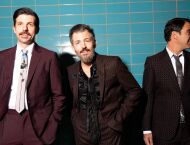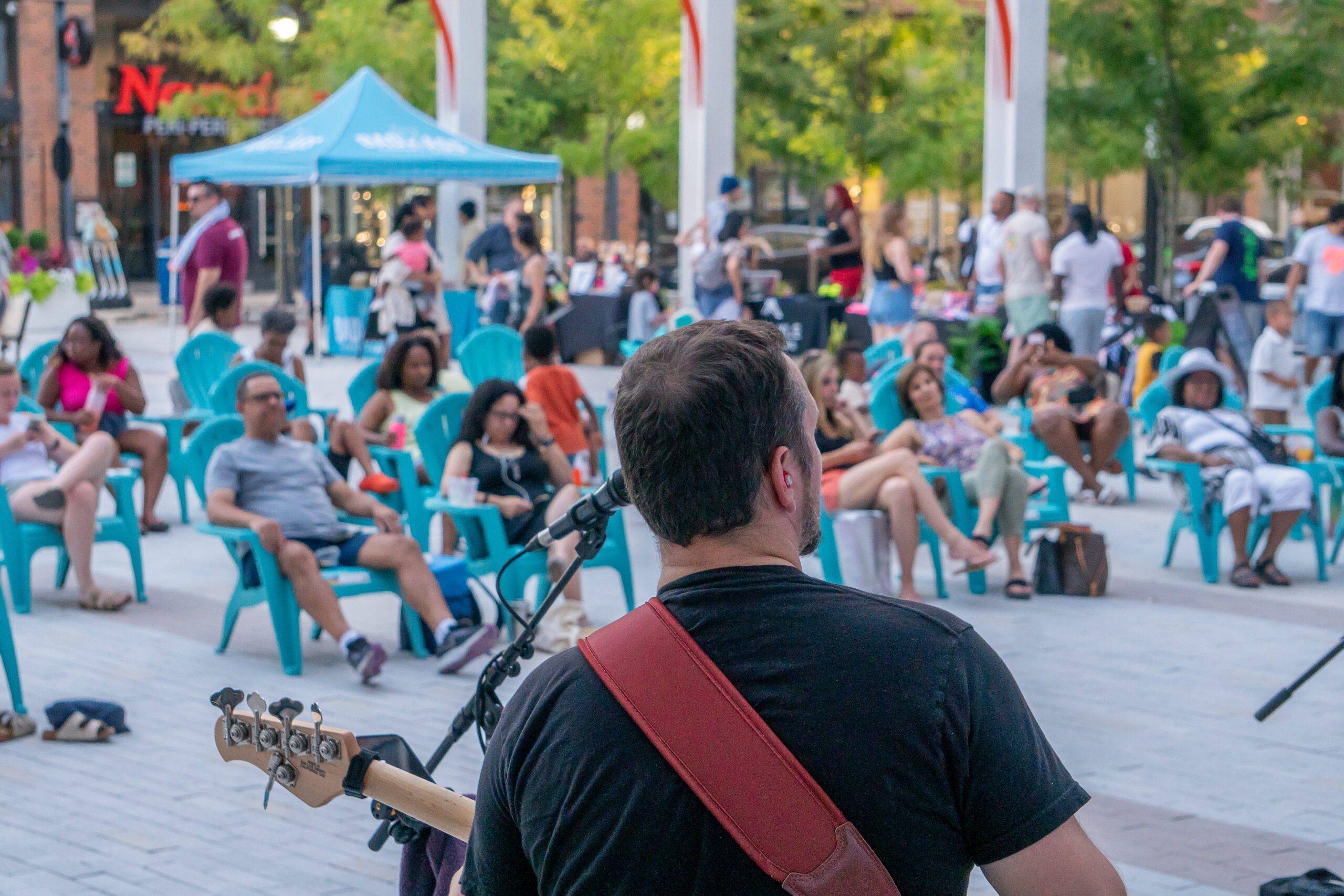Life
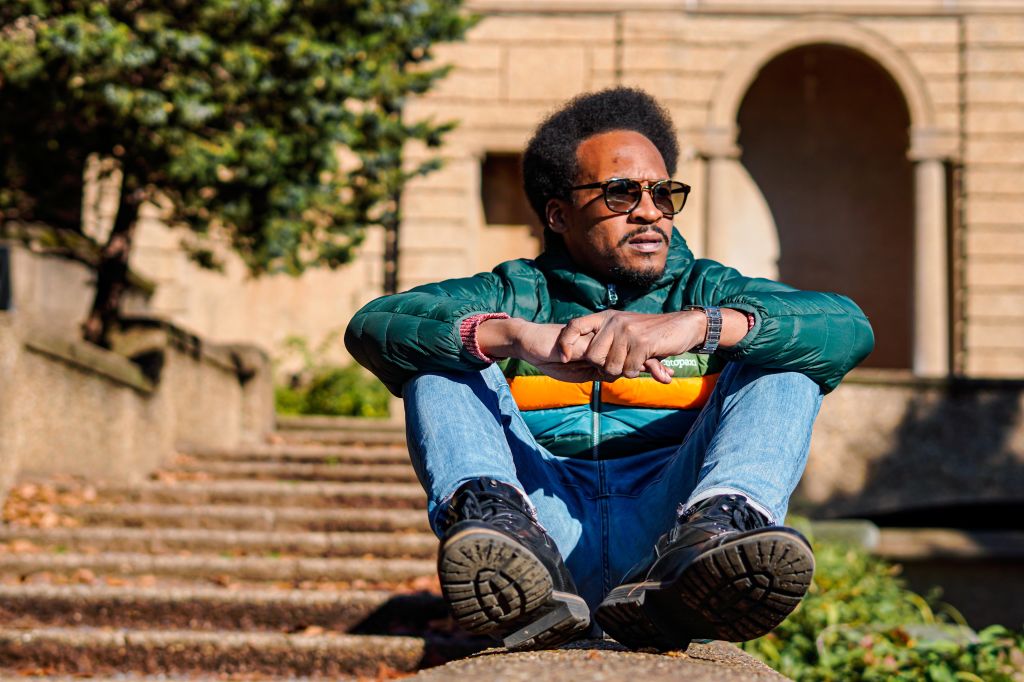 David Ross. Photo by Andrew J. Williams III.
David Ross. Photo by Andrew J. Williams III.
Just One Drink
November 8, 2021 @ 5:00pm
Hi, my name is David and I’m an alcoholic. This is something I’ve said on various Zooms, most recently at a 9:30 a.m. virtual Alcoholics Anonymous (AA) meeting, and will likely be saying it every day for the rest of my life.
I need time to sit with the last part of the previous sentence. The journey to this realization was as painfully dangerous and as briefly thrilling as swimming in a man-made ocean of booze. “This disease,” I kept hearing them say in AA or even in literature I’d found prior. When I think of a disease, I think of cancer — definitely not an arm motion with a bottle.
But see, that’s the disease. The disease is ignoring all of the drama and pain alcohol or drug use has caused an individual and their loved ones and thinking it’s cool to maintain the status quo.
Let me go through some of the things that disease can ignore. It’s a highlight reel of which I’m kind of embarrassed and hesitant to share, but why not? Here’s one that’d give most people pause.
A few years ago, I was recruited by a media organization and got so drunk in the morning I passed out and completely missed the interview. I came up with an elaborate lie, they agreed to meet me the following day and I did the same thing. And that’s a place I once dreamed of working at. Or how about the time I was in the emergency room because the comedown from a binge was so difficult I thought I was going to die? You think this would be enough, right?
I went from being a casual drinker to someone who knew the liquor store opens up at 8 a.m. and was in the parking lot by 7:59 a.m. For someone who is as severely depressed as I am, an opportunity to feel good can be at the top of your list. But that elevator that takes you to the top floor doesn’t advise you that it will later take you to a part of the building you didn’t know existed: one of deep pain and even deeper sadness — a place that might be enough of a recipe to just end it all.
“It’s a cycle,” says Dr. Gabriel Fabre, a substance abuse counselor for Thrive DC. “If you are depressed and you drink to get better, it’s going to come back and get you again. You’ll need to drink again every day to get better. But really, it’s getting worse.”
Thrive DC is a nonprofit that “works to prevent and end homelessness in Washington, D.C. by providing vulnerable people with a wide range of services to help stabilize their lives.” I first found out about this organization because my partner at the time was encouraging me to volunteer somewhere as opposed to wasting my time doing activities I shouldn’t.
As I was looking through Thrive DC’s website one day, I saw something about substance abuse, so I sent Dr. Gabriel (that’s what everyone calls him) a note. He reached back out that evening asking if I could talk.
Our relationship started with an hour-long chat before I began attending his class and listening to the stories of struggles with substance abuse told by individuals previously experiencing homelessness, and many who were still there. Meanwhile, I had a home in a nice, historic building across the street from the church where the organization operated from.
I remember thinking, “If these crazy, traumatic stories don’t stop me from drinking, nothing will.”
Well, they didn’t. And I stopped showing up. Life would get better briefly but soon deteriorate. And I’m back in his class now. What blows my mind is how hard it actually is to stop drinking.
You will tell people, “Nah, I’m trying to stay away from booze.”
And they’re like, “Completely?”
And I’m like, “Yeah.”
You can see the look of confusion in their eyes. This is something they’d never consider for themselves.
“Why don’t you just drink in moderation?” they often ask.
“But we’ve tried this,” I’d say to myself.
Some see what it actually does to you, and then they’re like, “Oh, yeah man, you shouldn’t drink.”
It’s like “Motherf–ker, I told you I don’t do well with booze.”
The best way I can describe trying not to drink would be like this: Imagine some kind of genie or witch comes to you in the middle of the night and says, “I will let you live the life you want to live beyond your wildest imagination. It will fill you with all of the joy and satisfaction you seek.”
“Dope!” I’d respond.
“But there’s one condition,” they’d say. “You can’t drink.”
“Like not even a sip for…” I’d interject.
“Nope, can’t drink,” they’d swiftly assert.
“What if I get like a promotion at…”
“Not hearing me. Can’t drink. For as soon as you take a sip, your dreams will disappear and so will you.”
Avoiding alcohol was such a struggle I started staying with friends in New Mexico to get away from certain characters and temptations. There were other reasons I wanted to be there, but it certainly helped. There’s something about the mountains. They’re calming. Out there, I didn’t feel the same urge to indulge. Going on hikes and jogs are more fun. I sometimes smoke but still, you can get high enough running through the desert.
But as soon as I land at BWI or DCA, I’m back in it. My therapist says it’s all about “positive associations.” If you only drink or do drugs with a group of friends, that’s the only association you’ll have with them. When you meet up, you’ll get that itch. And that’d be my cycle for a few months.
I’d be clean (mostly) when in New Mexico, and all of that work and progress would go down the drain as soon as I returned. As much as I can blame it on how this region can sometimes bore me, I think my willpower will have to be stronger than that. I often joke this town can be so boring at times, it’s what made John Mulaney relapse. It’s been a damn struggle. I associate this entire region with alcohol — and drug use. Sober D.C. streets just seemed painful.
Laura Silverman thinks differently. She’s the creator of Booze Free in DC, a wellness travel site, as well as Zero Proof Nation, a community celebrating nonalcoholic beverages and the people who drink and create them. Silverman learned in her 20s that she and alcohol couldn’t coexist.
She started to ask herself, “How can I see the D.C. area from a different lens? How can I explore it from a different perspective?”
This type of thinking has certainly filtered into the food and beverage scene here.
“Derek Brown [of Columbia Room] is one of the OGs in D.C. in terms of crafting nonalcoholic cocktails,” Silverman says. “I started to see more and more that there were people putting zero-proof beverages on their menus [and] people more focused on a healthy lifestyle.”
I personally frown on the nonalcoholic beverage game. Zero-proof cocktails feel like counterfeit. Full transparency: Alcohol never tasted good to me. I don’t want a reenactment. Alcohol was a slippery journey to a drunk destination. I didn’t care about the vehicle. I’m not at a brewery admiring the hops in an IPA or saying to someone “I can taste a hint of citrus in the…” — I prefer needle in vein.
Obviously, that’s just one opinion. And it’s not to discredit the likes of Brown and Silverman, who are pioneering a different lifestyle. Sometimes people like me need an alternative blueprint or even the suggestion of there being another way.
Silverman, among other approaches, decided to create a travel guidebook for locals and tourists on how to explore the D.C. area from a booze-free perspective. It’s a trend she’s also noticed within communities and groups around the globe.
I’ve started opening up to other ways of being, too.
Recently, my ex and I went to the High Heel Race together on 17th Street in Dupont. I didn’t really want to go, thinking, “Why on Earth would I want to watch this without drinking?” But I discovered, sober and slightly stoned, I was thoroughly entertained.
She then wanted to slip into one of the bars and have a cider, without the bourbon. As I sipped the mediocre cider, I thought to myself, “Is this it? Is this going to be my life from now on?”
Of course, sobriety requires so much more, but still, you will likely find yourself searching for the booze-free apple cider at some point.
I guess I decided the chances of me feeling great in life are small. There will be brief moments: an accomplishment, a more-than-average interaction that makes you laugh harder than usual or a woman who you become head over heels for. But these moments are fleeting, and that’s okay.
Alcohol can make you feel great. I choose feeling just okay. That’s going to have to be enough for me. I can’t allow alcohol to destroy my life — or anyone else’s — anymore. I’ve come to embrace that serenity is not trying to change your past. It’s about the next step forward: the next moment.


